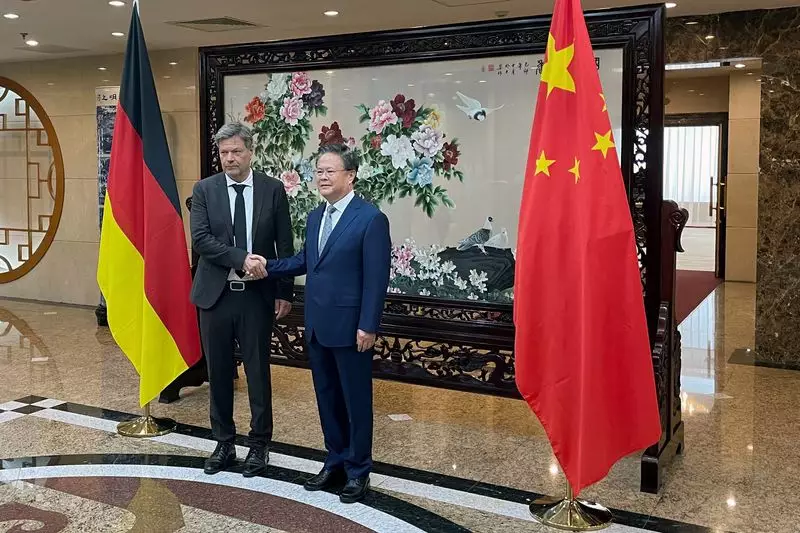On a recent visit to China, Germany’s Economy Minister Robert Habeck addressed concerns regarding proposed European Union tariffs on Chinese goods. Habeck emphasized that these tariffs should not be viewed as a form of punishment. In fact, he made a point to differentiate the EU’s approach from other countries such as the U.S., Brazil, and Turkey who have implemented punitive tariffs. According to Habeck, the EU’s motive behind these tariffs is to address what they consider to be excessive subsidies benefiting Chinese companies.
Habeck highlighted that the European Commission had spent nine months conducting a thorough examination to determine if Chinese companies were unfairly benefiting from subsidies. The focus of the investigation was to identify any advantages granted to Chinese companies by Beijing and to consider measures to compensate for these advantages. It is important to note that Habeck clarified that any countervailing duty measures resulting from the EU review are not intended as a punishment but as a means to level the playing field.
During his visit, Habeck engaged in discussions with Zheng Shanjie, chairman of China’s National Development and Reform Commission, regarding the proposed EU tariffs. The dialogue centered around the EU’s goal of fostering fair trade relations with China and ensuring that competition remains equitable. The EU seeks to promote a transparent and competitive market environment where all players, including Chinese companies, have the opportunity to thrive based on merit rather than unfair advantages.
China had expressed concerns about potential frictions with the EU over electric vehicle imports and the possibility of a trade war. However, Habeck’s visit aimed to clarify that the EU’s intentions are not hostile but rather aimed at rectifying perceived imbalances in trade practices. By engaging in constructive dialogue and emphasizing the importance of fair competition, the EU hopes to prevent any escalation in trade tensions with China.
The EU’s approach to tariffs on Chinese goods reflects a commitment to upholding fair trade practices and ensuring a level playing field for all market participants. By conducting thorough investigations and engaging in transparent dialogue, the EU seeks to address concerns related to subsidies and promote a competitive marketplace that benefits all parties involved.


Leave a Reply